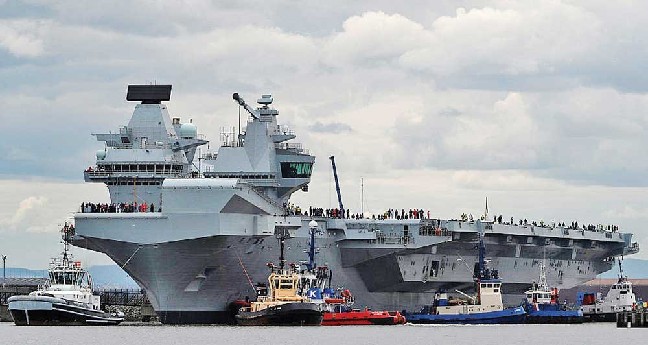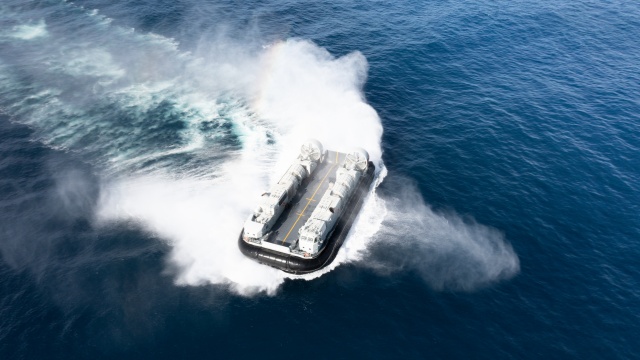
The British Navy will dispatch its HMS Queen Elizabeth aircraft carrier to the South China Sea in early 2021 for a joint exercise with the US Navy and Japan Self-Defense Force to “counter an increasingly assertive China”, reported The Times, a British newspaper, on July 13. London’s decision to deploy the aircraft carrier all the way to make waves in the South China Sea, in an attempt hedge its bets on Brexit, will only drag down its international reputation rather than refresh its global presence.
From 2017 to 2019, the UK vowed almost every year to send the aircraft carrier to patrol the South China Sea, but never did. For instance, the then British defense minister Gavin Williamson said in 2019 that they would deploy aircraft carriers to the South China Sea to demonstrate “hard power”, but the prime minister’s office criticized his remarks, and Gavin was fired in May that year.
According to Zhao Junjie, a researcher at the Institute of European Studies of Chinese Academy of Social Sciences, the UK cannot dispatch aircraft carriers to the South China Sea as easily as the politicians sounded since the deployment has to be approved by the parliament. The move would also meet stiff opposition from the public as it would cost a fortune.
Not being an Asian country and located far away from the South China Sea, the UK is so actively stirring up trouble in the region to uplift its international influence that’s been falling after Brexit. In 2016, the British government put forth the idea of “Global Britain” after the Brexit referendum to maintain its global influence, in which Asia played an important role according to a document submitted by British Foreign Ministry to the parliament. Against such a background, meddling in the South China Sea issue on a high profile and sticking its nose into Asia has become an important way for the UK to realize its vision for Global Britain while maintaining global influence.
Moreover, in the past few years, the US believed its European allies had failed to share its pressure of tackling the China threat in the Asia Pacific, while the UK, also an American ally, has the secret wish to fortify its relationship with Washington by interfering in the South China Sea affairs. In the past decade or so, European countries have mostly only expressed their concerns orally but didn’t really care about the South China Sea. In contrast, London hopes to pose as a European power that takes strong interests in matters out of its region through “active engagement” in the South China Sea, so as to elevate its position in the international community. However, according to Zhao Junjie, the UK doesn’t have a strong military force in the global stage with its declining post-Brexit comprehensive strength, which makes its high-profile participation in the South China Sea issue just a tactical tag-along of the US rather than a strategic pivot.
Brexit and the COVID-19 pandemic have plunged British society into a mire of dilemmas. IMF’s June forecast expected the British economy to contract by more than 10% in 2020, while UK’s Office for Budget Responsibility recently stated that the country might see the biggest annual GDP drop in 300 years as the economy wasn’t likely to get back to the pre-pandemic level until the end of 2022. Given such a pessimistic economic outlook, London should have enhanced its economic and trade exchanges with China and other Asian-Pacific countries to boost its economic recovery. Yet, it has willingly served as Washington’s chess piece in the South China Sea, a shocking manifestation of its lack of strategic vision. Zhao held that both the exclusion of Huawei in its 5G network and its engagement in the South China Sea issue have demonstrated London’s traditional diplomatic thinking of following America’s lead.
Patrolling the South China Sea may give the UK the illusion of being the empire it was once, which, however, is nothing but a pipe dream. After all, a Britain that doesn’t have an independent foreign policy and is heavily dependent on the whims of others does not deserve the self-proclaimed title of “Great Britain”.
Disclaimer: This article is originally published on haiwainet.cn and translated from Chinese into English and edited by the China Military Online. The information, ideas or opinions appearing in this article do not necessarily reflect the views of eng.chinamil.com.cn.













